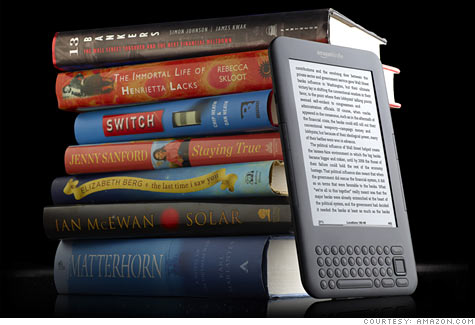Today Amazon sells more digital books than physical books. This is a dramatic shift in this industry and publishers struggle to adapt. The struggle of an industry – an institution – seeing its Industrial Age business model crumble should not hide the most important: the actual dissemination of information.

Overall, do people read less or more books than before?
According to this MediaPost detailed article and statistics, people who have bought e-books tend to download and read more books than before. It appears to be statistically significant.
Why is that? For sure, clever marketing by Amazon makes it easy to download and consume more. When it comes to reading, my own experience is that the small, lightweight and convenient size of e-books allows to read in many places like the underground train or whenever there is a short break. And I definitely read even more since I have an entire library inside my Kindle, making a switch from a book to another easy.
So, the introduction of e-books did not kill reading. It increased it, at the same time as it made many non-mainstream or old books available to everybody. And, taking into account the vast amount of other information we read on other media, such an availability of high quality information is unprecedented. It will necessarily be the source of many creative innovations.
Think about it. I can download on my e-reader in less than 1 minute any title available worldwide without the bother of the logistics of sending physical books over (and I am living in Singapore, so this problem is particularly sensitive!). WOW.
Who said the Fourth Revolution is not yet here?
